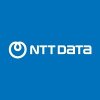
i
VOIS
Filter interviews by
VOIS Interview Questions and Answers
88 Interview questions
Basic accounting principles involve key formulas that help in financial analysis and reporting.
Accounting Equation: Assets = Liabilities + Equity. Example: If a company has $100,000 in assets and $40,000 in liabilities, equity is $60,000.
Revenue Recognition Principle: Revenue is recognized when earned, not necessarily when received. Example: A service performed in December is recorded in December, even if payment ...
Capital expenditures (CapEx) are funds used by a company to acquire or upgrade physical assets.
CapEx includes purchases of property, buildings, and equipment.
Examples: Buying a new manufacturing plant or upgrading machinery.
CapEx is essential for long-term growth and operational efficiency.
It differs from operational expenditures (OpEx), which are ongoing costs for running a business.
The procurement cycle involves a series of steps to acquire goods and services efficiently and effectively.
1. Identify Needs: Determine what goods or services are required, e.g., medical supplies for a hospital.
2. Supplier Selection: Research and evaluate potential suppliers based on quality and cost, e.g., choosing a vendor for surgical instruments.
3. Purchase Order: Create and send a purchase order to the select...
Python lambda functions are anonymous functions defined using the lambda keyword, useful for short, throwaway functions.
Lambda functions can take any number of arguments but can only have one expression.
They are often used in conjunction with functions like map(), filter(), and reduce().
Example: square = lambda x: x ** 2; print(square(5)) outputs 25.
Lambda functions can be used to sort lists: sorted_list = sorted(...
Shallow copy duplicates the reference, while deep copy duplicates the entire object, including nested objects.
Shallow copy creates a new object but inserts references into it to the objects found in the original.
Deep copy creates a new object and recursively copies all objects found in the original, creating independent copies.
Example of shallow copy in Python: `list1 = [1, 2, 3]; list2 = list1.copy()`; changes in...
Reading a CSV file involves loading data, transforming it, and processing it for analysis or storage.
Use libraries like Pandas in Python: `import pandas as pd; df = pd.read_csv('file.csv')`.
Data cleaning: Remove duplicates with `df.drop_duplicates()`.
Data type conversion: Convert a column to datetime with `df['date'] = pd.to_datetime(df['date'])`.
Filtering data: Use conditions like `df[df['age'] > 30]` to filte...
RDDs, DataFrames, and Datasets are core abstractions in Apache Spark for handling large-scale data processing.
RDD (Resilient Distributed Dataset): Immutable distributed collection of objects, fault-tolerant, and supports parallel processing.
Example: val rdd = spark.parallelize(Seq(1, 2, 3, 4)) creates an RDD from a sequence.
DataFrame: Distributed collection of data organized into named columns, similar to a table ...
OCI (Oracle Call Interface) is a low-level API for interacting with Oracle databases using C and C++ programming languages.
OCI provides a set of C functions for database operations like querying and updating data.
It allows for efficient memory management and performance tuning in database applications.
Developers can use OCI to build high-performance applications that require direct database access.
Example: A C app...
The current Oracle Database version is 21c, featuring enhanced performance, security, and cloud capabilities.
Oracle 21c is the latest Long Term Support release, offering improved scalability.
New features include AutoML for machine learning and JSON enhancements.
Oracle Database 21c supports multi-model databases, integrating SQL, JSON, and XML.
It provides advanced security features like data redaction and improved ...
EC2 connectivity issues can arise from various network, security, and configuration problems affecting instance access.
Check Security Groups: Ensure the inbound rules allow traffic on the required ports (e.g., SSH on port 22).
Verify Network ACLs: Ensure that the Network Access Control Lists allow the necessary traffic to and from the EC2 instance.
Examine Route Tables: Ensure that the route tables are correctly con...
VOIS Interview Experiences
158 interviews found
(2 Questions)
- Q1. CCNA BASED QUESTIONS
- Q2. About Last organisation work
(2 Questions)
- Q1. Day to day activities in last organisation
- Ans.
Managed daily operations, supervised staff, handled customer inquiries, and ensured store cleanliness.
Supervised staff to ensure tasks were completed efficiently
Handled customer inquiries and resolved any issues
Managed inventory and restocked products as needed
Ensured store cleanliness and organization
Created employee schedules and delegated tasks accordingly
- Q2. Scenario based question
Interview Preparation Tips
Easy question math, reasoning and software engineer
(2 Questions)
- Q1. Question related to yout strength
- Ans.
My greatest strength is my adaptability, allowing me to thrive in dynamic environments and tackle challenges effectively.
I quickly adjust to new situations, as seen when I transitioned from a group project to a leadership role.
During my internship, I adapted to changing project requirements, ensuring timely delivery despite challenges.
I embrace feedback and learn from experiences, which helps me improve continuously an...
- Q2. Tell me something which is not mentioned in your resume
- Ans.
I am fluent in three languages - English, Spanish, and French.
I learned Spanish during a study abroad program in Spain
I studied French in school and continued to practice through online resources
Being multilingual has helped me communicate effectively with diverse groups of people
Interview Preparation Tips
I appeared for an interview in Sep 2024.
(1 Question)
- Q1. Questions about current experience and some scenario based questions
(1 Question)
- Q1. Project Management and past experience related questions
(1 Question)
- Q1. Interview with Management
(1 Question)
- Q1. HR related conversation
I appeared for an interview in Jun 2025, where I was asked the following questions.
- Q1. Question related to spark optimization
- Q2. About DLT in Databricks
(1 Question)
- Q1. How did you use abinitio in your project?
- Ans.
I used Abinitio to extract, transform, and load data in a project for data integration.
Used Abinitio graph to design ETL processes for data extraction from multiple sources
Implemented data transformations and business logic using Abinitio components
Loaded processed data into target systems efficiently
Utilized Abinitio continuous flows for real-time data processing
Debugged and optimized Abinitio graphs for performance i...
(1 Question)
- Q1. 1. Tell about your project, scenario based questions about data warehouse. Why we use star schema, what's different between star schema and regular relational table. Write query to find sum of totalsales. ...
(2 Questions)
- Q1. Sanity vs smoke
- Ans.
Sanity tests are focused on specific functionalities to ensure basic requirements are met, while smoke tests are broader tests to check if the build is stable enough for further testing.
Sanity tests are narrow in scope and focus on specific functionalities or areas of the application.
Smoke tests are broader in scope and are used to quickly determine if the build is stable enough for further testing.
Sanity tests are usu...
- Q2. Regression testing
(2 Questions)
- Q1. Core java concepts
- Q2. Oops concepts explain
- Ans.
Oops concepts are fundamental principles of object-oriented programming such as inheritance, polymorphism, encapsulation, and abstraction.
Inheritance: Allows a class to inherit properties and behavior from another class.
Polymorphism: Allows objects to be treated as instances of their parent class.
Encapsulation: Bundling data and methods that operate on the data into a single unit.
Abstraction: Hiding the complex impleme...
Skills evaluated in this interview
I appeared for an interview in May 2025, where I was asked the following questions.
- Q1. What is the procurement cycle?
- Ans.
The procurement cycle involves a series of steps to acquire goods and services efficiently and effectively.
1. Identify Needs: Determine what goods or services are required, e.g., medical supplies for a hospital.
2. Supplier Selection: Research and evaluate potential suppliers based on quality and cost, e.g., choosing a vendor for surgical instruments.
3. Purchase Order: Create and send a purchase order to the selected su...
- Q2. What do capital expenditures (CapEx) mean?
- Ans.
Capital expenditures (CapEx) are funds used by a company to acquire or upgrade physical assets.
CapEx includes purchases of property, buildings, and equipment.
Examples: Buying a new manufacturing plant or upgrading machinery.
CapEx is essential for long-term growth and operational efficiency.
It differs from operational expenditures (OpEx), which are ongoing costs for running a business.
- Q3. What are the formulas associated with basic accounting principles?
- Ans.
Basic accounting principles involve key formulas that help in financial analysis and reporting.
Accounting Equation: Assets = Liabilities + Equity. Example: If a company has $100,000 in assets and $40,000 in liabilities, equity is $60,000.
Revenue Recognition Principle: Revenue is recognized when earned, not necessarily when received. Example: A service performed in December is recorded in December, even if payment is re...
(1 Question)
- Q1. Questions on streams rest api
(1 Question)
- Q1. Managerial discussion
Interview Preparation Tips
(1 Question)
- Q1. 2 Question on program . one is Restassured program and other is java prog.
Top trending discussions






VOIS Interview FAQs
Some of the top questions asked at the VOIS interview -
The duration of VOIS interview process can vary, but typically it takes about less than 2 weeks to complete.
Tell us how to improve this page.
VOIS Interviews By Designations
- VOIS Assistant Manager Interview Questions
- VOIS Senior Executive Interview Questions
- VOIS Deputy Manager Interview Questions
- VOIS Graduate Engineer Trainee (Get) Interview Questions
- VOIS Manager Interview Questions
- VOIS Team Manager Interview Questions
- VOIS Data Engineer Interview Questions
- VOIS Engineer Trainee Interview Questions
- Show more
Interview Questions for Popular Designations
- Senior Executive Interview Questions
- Assistant Manager Interview Questions
- Deputy Manager Interview Questions
- Graduate Engineer Trainee (Get) Interview Questions
- Manager Interview Questions
- Team Manager Interview Questions
- Engineer Trainee Interview Questions
- Data Engineer Interview Questions
- Show more
Overall Interview Experience Rating
based on 177 interview experiences
Difficulty level
Duration
Interview Questions from Similar Companies
|
Deputy Manager
839
salaries
| ₹13 L/yr - ₹21.8 L/yr |
|
Senior Executive
803
salaries
| ₹4 L/yr - ₹8 L/yr |
|
Assistant Manager
724
salaries
| ₹5.8 L/yr - ₹13.5 L/yr |
|
Manager
363
salaries
| ₹18 L/yr - ₹31.1 L/yr |
|
Senior Manager
208
salaries
| ₹27.2 L/yr - ₹42.7 L/yr |

Genpact

DXC Technology

Sutherland Global Services

Optum Global Solutions
- Home >
- Interviews >
- VOIS Interview Questions












